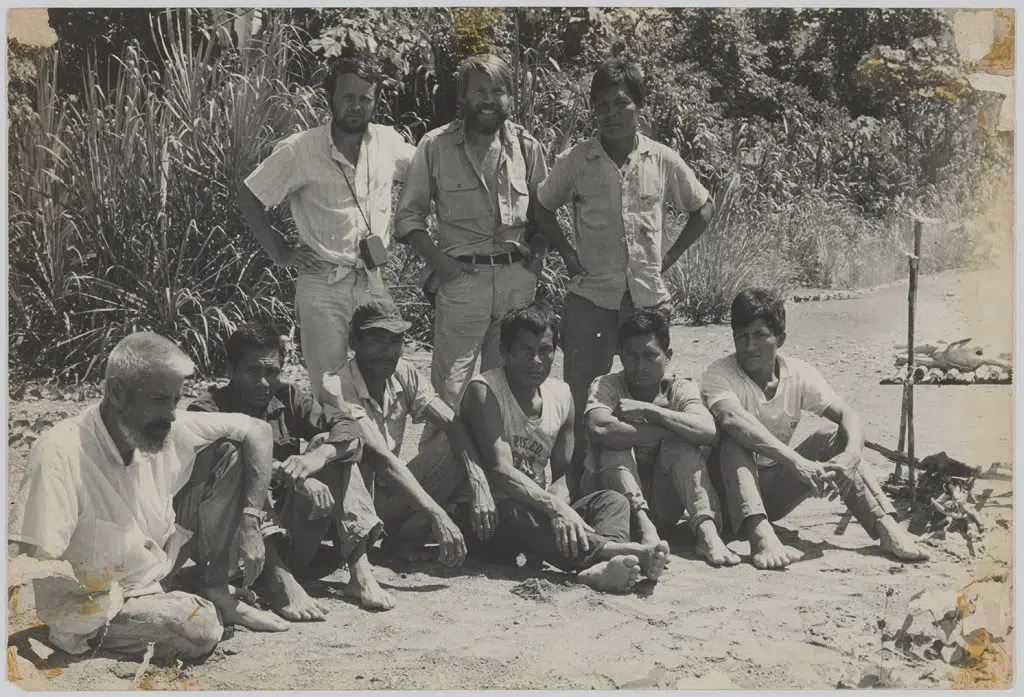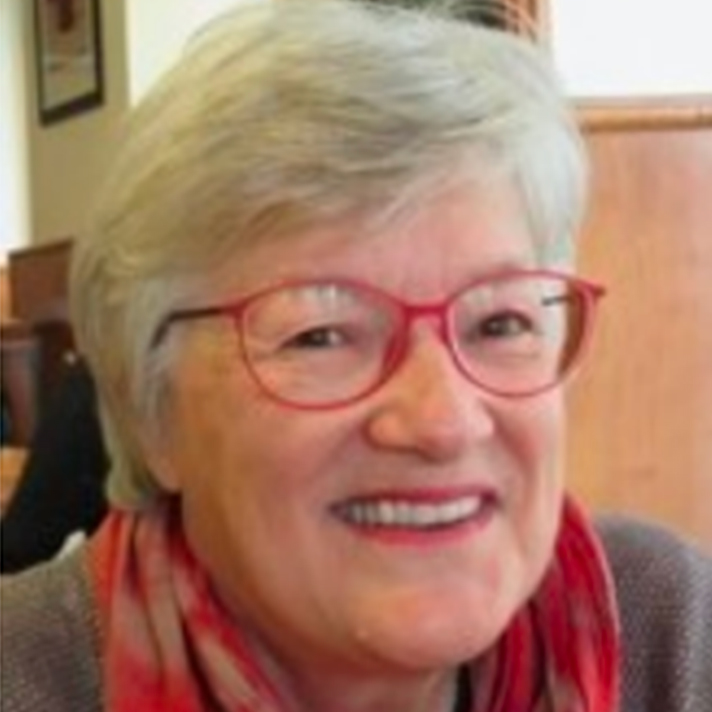* Bernard Lelong is seated lower left. — ©NC
The Lelong Bequest in Social Anthropology is intended to fund anthropological research into the cultures of the Peruvian Amazon and adjacent regions.
Bernard Lelong worked in Latin America for an airline company. Self-taught in anthropology, he focused his research on the Lamista, an indigenous society in Peru’s eastern foothills. He became fascinated by their history and culture, and in particular by their concepts of illness and their knowledge of medicinal plants. It was at this point that he built up an extensive ethnobotanical file. He published several articles in Les Temps modernes and two books, one in collaboration with Jean-Luc Lancrey-Javal, Cordillère magique (preface by Marcel Griaule, published by Amiot Dumont in 1955); the other published under his own name, La Rivière du Maïs (published by J.-C. Lattès in 1974), in which he recounts his journey in search of a lost expedition in the Peruvian Amazon. Upon his return to France, he acquired a large estate in the Sologne region.
Living off the good management of his estate, he organised several scientific expeditions to Amazonia. He offered the estate to researchers so that they could ‘work in peace’, and appointed the CNRS as his universal legatee. When he died in 1980, the first Lelong funding began. Since then, the estate has been sold and the money invested. Through this universal bequest to the CNRS, Bernard Lelong wanted to encourage anthropological research in the Peruvian Amazon conducted by specialist anthropologists. It is in keeping with this desire that the CNRS Foundation, together with the CNRS Institute of Human and Social Sciences, provides funding for these projects every year.



